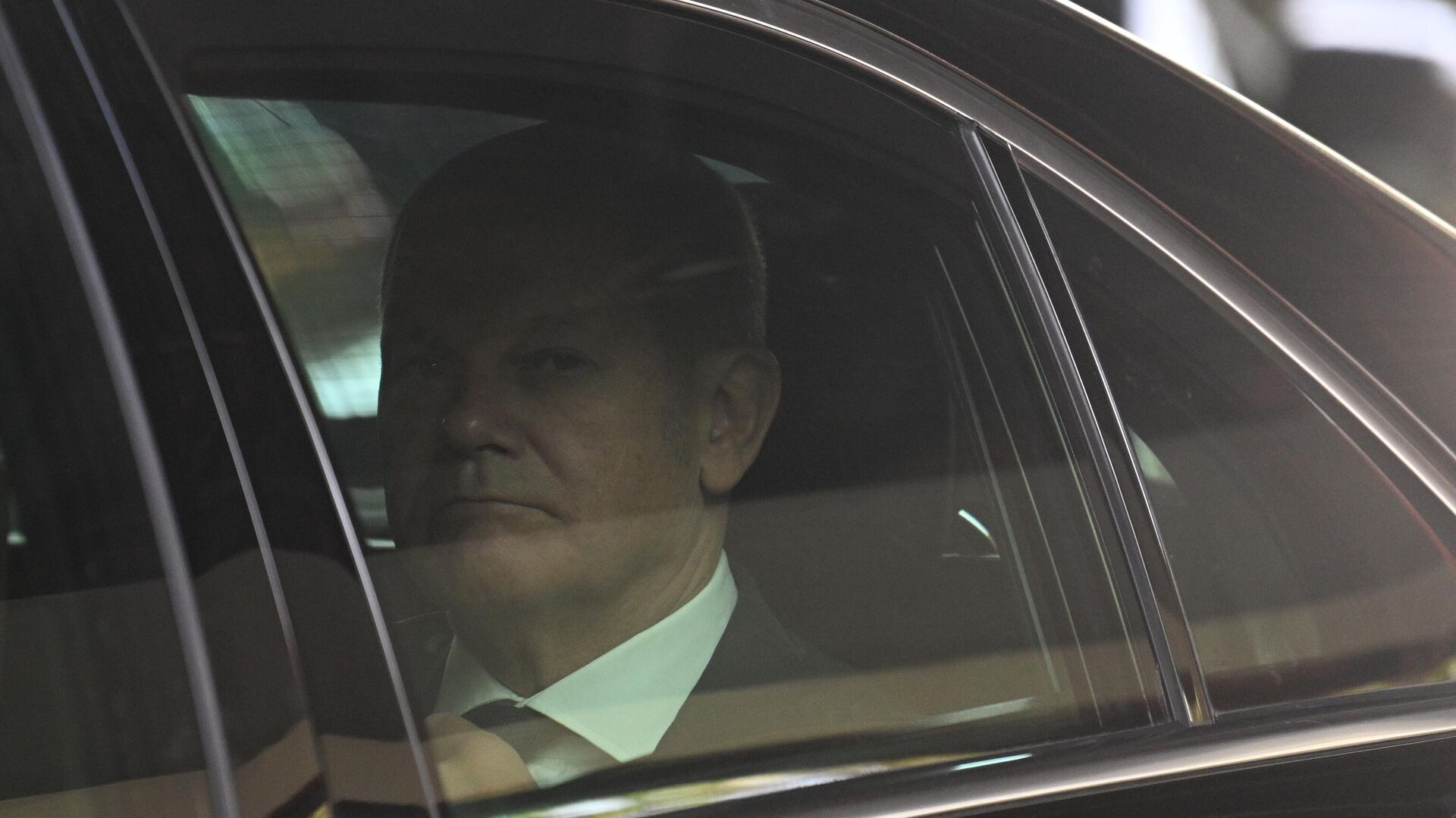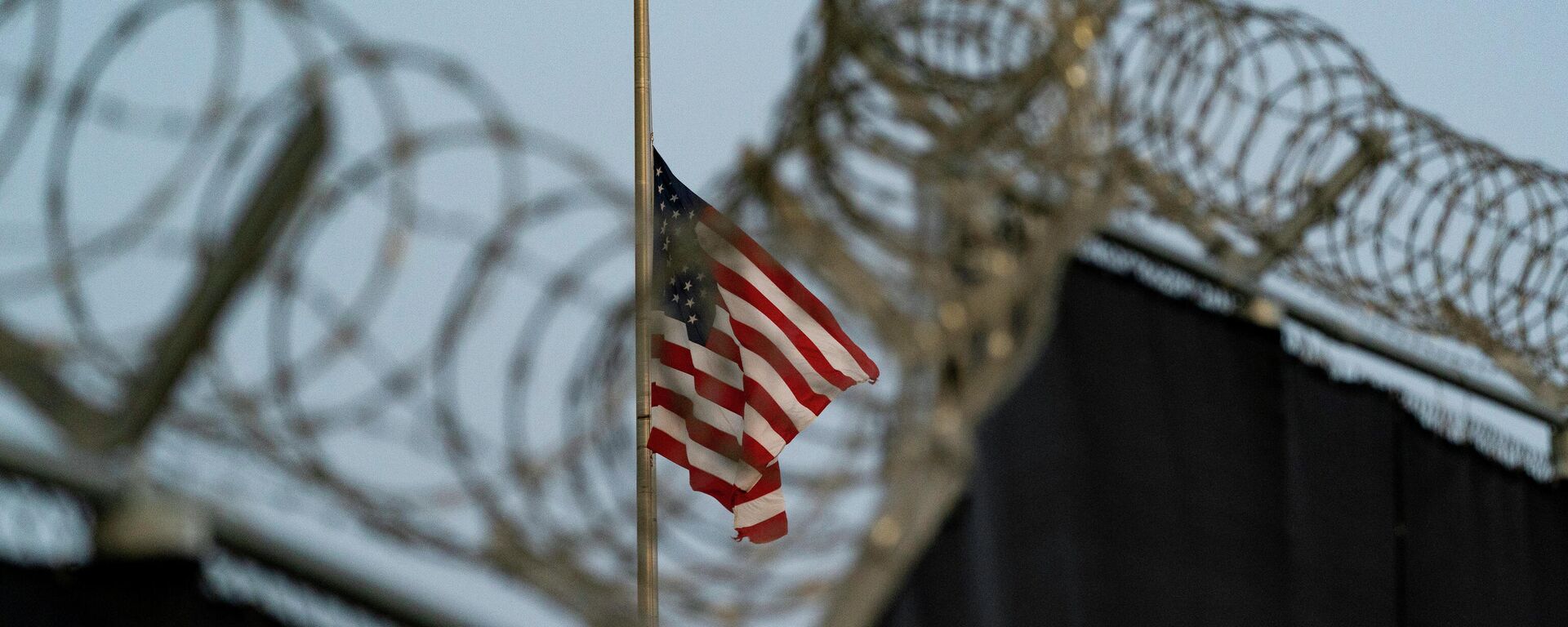https://sputnikglobe.com/20230201/german-chancellor-in-latin-america-just-a-visit-or-attempt-to-seduce-against-china-russia-1106863695.html
German Chancellor in Latin America: Just a Visit or Attempt to ‘Seduce’ Against China, Russia?
German Chancellor in Latin America: Just a Visit or Attempt to ‘Seduce’ Against China, Russia?
Sputnik International
German Chancellor Olaf Scholz's trip to Argentina, Chile, and Brazil between January 28 and 31 was obviously aimed at deterring China's advance in the lithium race and uniting these countries against Russia, experts told Sputnik.
2023-02-01T04:15+0000
2023-02-01T04:15+0000
2023-02-01T04:15+0000
world
germany
latin america
olaf scholz
china
russia
resources
https://cdn1.img.sputnikglobe.com/img/07e7/01/1f/1106864206_0:161:3069:1887_1920x0_80_0_0_eb7f83cdf0af60fec4821564a89da0c0.jpg
In particular, the visit is an attempt by the German authorities to involve the countries of the Southern Cone in the conflict in Ukraine and to create a counterweight in the region to China's growing influence.According to Argentine political scientist Juan Martin Gonzalez, "these seduction maneuvers will become more common."The expert believes that Scholz's trip can be interpreted as "an action that restores balance and responds to the recent steps taken by the region as an autonomous pole or as a project to become one."According to the analyst, it is no coincidence that the German chancellor visited the region just a few days after the summit of the Community of Latin American and Caribbean States (CELAC), where countries sought to strengthen regional integration. Western powers are not interested in Latin American countries strengthening ties with Russia and China. Gonzalez believes that Germany can present a different strategy from the US in this regard. "Germany tends to be a more subtle and softer interlocutor compared to the US, which tends to use hard diplomacy," he said.Argentine political scientist Alberto Hutschenreuter, for his part, stressed that behind Scholz's visit is the fact that "China has become very close to Latin America, especially in the last 12 years," so there is an aspect of "interstate competition in terms of geoeconomics" in the German government. And the largest lithium reserves in Latin America play an important role here.Chilean political scientist Rodrigo Karmy told Sputnik that Scholz's visit was a sort of attempt by the United States and Europe "to make the Chilean economy work for them, as it has historically done."To that end, Karmy noted that both Washington and Berlin, on behalf of Europe, are eager for countries like Chile to ratify their trade, diplomatic, and political relations with the West "in the face of the Chinese threat."However, Germany is now also under pressure to find energy solutions in light of the sanctions it has imposed on Russia.Hutschenreuter noted that in this context, Latin America "seems to be an interesting player, not only in terms of gas, which Germany needs, but also in terms of other resources that are also strategic and abundant in some countries in the region."However, Germany may not get the response it hoped for from Latin American leaders. According to Gonzalez, the position of the leaders of Argentina and Chile reflects the fact that they are governments that "know how to distinguish between economic cooperation and political subjugation."According to Hutschenreuter, "the involvement of Latin America in the conflict in Ukraine is a rather distant scenario," especially because the region has different positions on the situation. In the same vein, he recalled that Latin America is not a relevant area at the international level in terms of arms.
https://sputnikglobe.com/20220607/no-longer-us-backyard-latin-america-sends-united-message-1096083214.html
https://sputnikglobe.com/20230130/scholz-claims-special-interest-in-chilean-lithium-1106805998.html
germany
china
russia
Sputnik International
feedback@sputniknews.com
+74956456601
MIA „Rosiya Segodnya“
2023
Sputnik International
feedback@sputniknews.com
+74956456601
MIA „Rosiya Segodnya“
News
en_EN
Sputnik International
feedback@sputniknews.com
+74956456601
MIA „Rosiya Segodnya“
Sputnik International
feedback@sputniknews.com
+74956456601
MIA „Rosiya Segodnya“
latin america, olaf scholz, scholz in argentina, scholz in chile, scholz in brazil, fight for resources
latin america, olaf scholz, scholz in argentina, scholz in chile, scholz in brazil, fight for resources
German Chancellor in Latin America: Just a Visit or Attempt to ‘Seduce’ Against China, Russia?
German Chancellor Olaf Scholz's trip to Argentina, Chile, and Brazil between January 28 and 31 was obviously aimed at deterring China's advance in the lithium race and uniting these countries against Russia, experts told Sputnik.
In particular, the visit is an attempt by the German authorities to involve the countries of the Southern Cone in the conflict in Ukraine and to create a counterweight in the region to China's growing influence.
According to Argentine political scientist Juan Martin Gonzalez, "these seduction maneuvers will become more common."
The expert believes that Scholz's trip can be interpreted as "an action that restores balance and responds to the recent steps taken by the region as an autonomous pole or as a project to become one."
According to the analyst, it is no coincidence that the German chancellor visited the region just a few days
after the summit of the Community of Latin American and Caribbean States (CELAC), where countries sought to strengthen regional integration. Western powers are not interested in Latin American countries strengthening ties with Russia and China. Gonzalez believes that Germany can present a different strategy from the US in this regard. "Germany tends to be a more subtle and softer interlocutor compared to the US, which tends to use hard diplomacy," he said.
Argentine political scientist
Alberto Hutschenreuter, for his part, stressed that behind Scholz's visit is the fact that "China has become very close to
Latin America, especially in the last 12 years," so there is an aspect of "interstate competition in terms of geoeconomics" in the German government. And the largest lithium reserves in Latin America play an important role here.
Chilean political scientist Rodrigo Karmy told Sputnik that Scholz's visit was a sort of attempt by the United States and Europe "to make the Chilean economy work for them, as it has historically done."
"The imperialist relations remain the same, but they are now fundamentally marked by a global dispute over resources with the presence of China. And this is no small matter, because it reminds us that Chile's main copper export partner today is not the United States, but China," Karmy added.
To that end, Karmy noted that both Washington and Berlin, on behalf of Europe, are eager for countries like Chile to ratify their trade, diplomatic, and political relations with the West "in the face of the Chinese threat."

30 January 2023, 04:39 GMT
However, Germany is now also under pressure to find energy solutions in light of the sanctions it has imposed on Russia.
"I wonder if Germany would have shown interest in Latin America if what's happening in Ukraine hadn't happened," Hutschenreuter said, adding that Scholz's visit also reflects "Germany's need for alternative energy sources."
Hutschenreuter noted that in this context, Latin America "seems to be an interesting player, not only in terms of gas, which Germany needs, but also in terms of other resources that are also strategic and abundant in some countries in the region."
However, Germany may not get the response it hoped for from Latin American leaders. According to Gonzalez, the position of the leaders of Argentina and Chile reflects the fact that they are governments that "know how to distinguish between economic cooperation and political subjugation."
According to Hutschenreuter, "the involvement of Latin America in the conflict in Ukraine is a rather distant scenario," especially because the region has different positions on the situation. In the same vein, he recalled that Latin America is not a relevant area at the international level in terms of arms.






